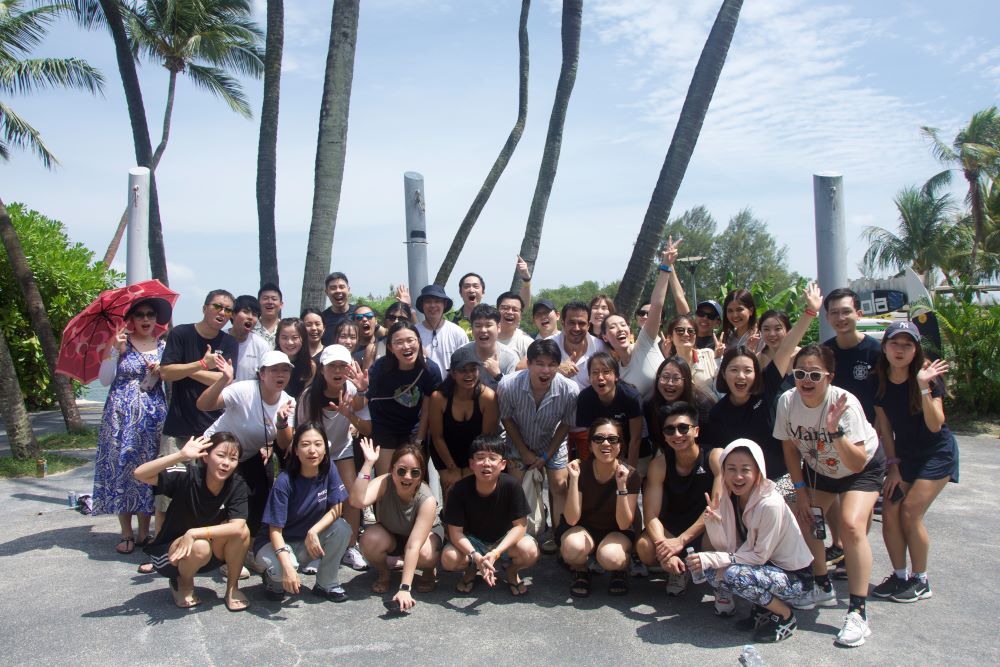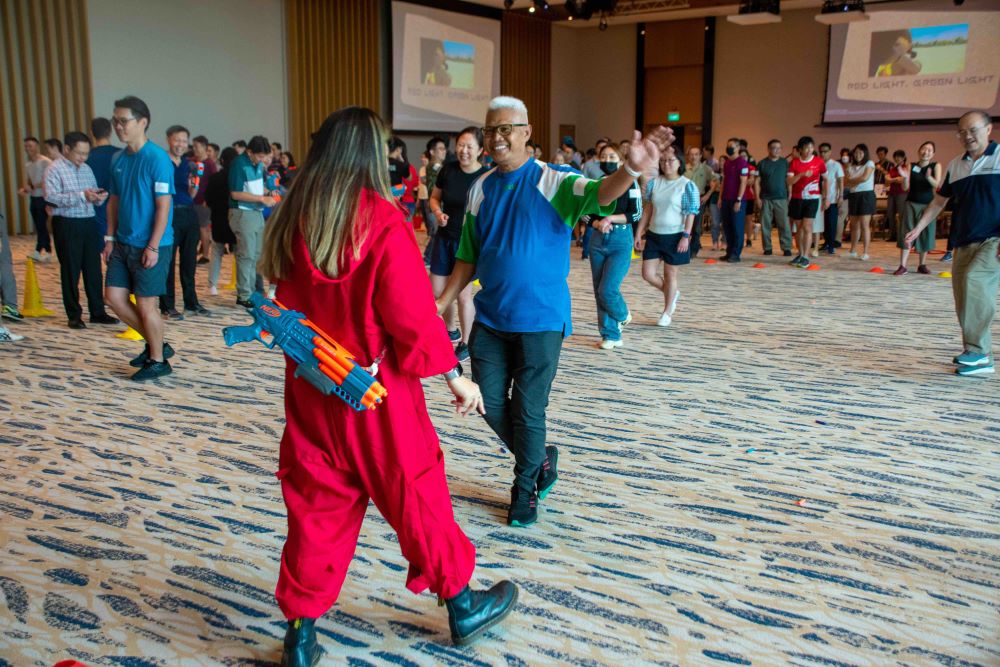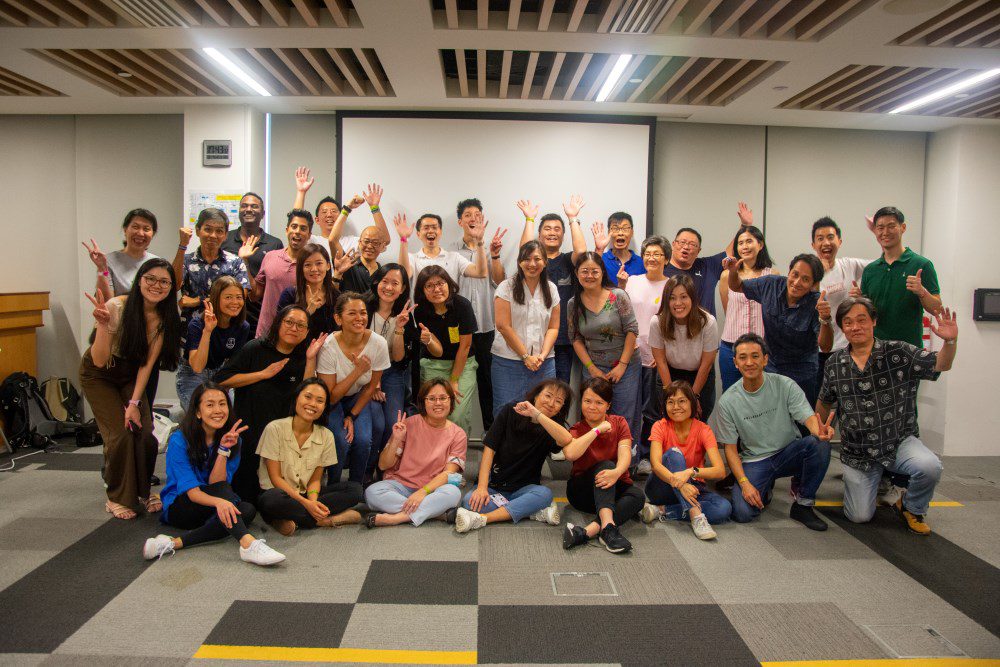The Growing Importance of Employee Happiness and Team Building
Why Employee Happiness Matters More Than Ever
In today’s fast-paced and competitive business world, employee happiness has become more than just a nice-to-have—it’s a critical factor in a company’s success. Businesses are realizing that a positive workplace culture isn’t just good for morale; it directly impacts productivity, retention, and overall organizational health.
Happy employees are more engaged, motivated, and dedicated to their work. They contribute to a stronger company culture and help drive success. In dynamic business hubs like Singapore, where team-building and employee engagement are taken seriously, companies are finding new ways to ensure their workforce feels valued and fulfilled.
The Real Impact of Employee Happiness
A happy workforce isn’t just a feel-good factor—it has great benefits:
- Higher Productivity: Employees who feel appreciated and motivated are more likely to put in their best efforts, leading to increased efficiency and performance.
- Better Retention Rates: When employees feel valued, they are more likely to stay with a company, reducing turnover costs and ensuring stability.
- Stronger Collaboration: A positive workplace environment fosters teamwork and minimizes conflicts, helping employees work together more effectively.
- Lower Stress and Burnout: Organizations that focus on mental well-being create a supportive atmosphere that helps employees manage stress and remain engaged.
- Attracting Top Talent: Companies that prioritize employee happiness stand out in the job market, making it easier to attract and retain skilled professionals.

How Companies Can Foster Employee Happiness
Building a happy workplace doesn’t happen by accident—it requires intentional strategies and initiatives. Some effective ways companies are making their employees feel valued include:
- Wellness Programs: From mental health support to fitness incentives, wellness initiatives show employees that their well-being matters.
- Recognition and Appreciation: Acknowledging employees’ hard work through awards, bonuses, or simple words of appreciation boosts morale.
- Flexible Work Arrangements: Offering remote work options, flexible hours, or hybrid schedules helps employees maintain a better work-life balance.
- Team-Building Activities: Engaging employees in fun and meaningful team-building exercises strengthens relationships and enhances collaboration.
With forward-thinking approaches, businesses can create an environment where employees feel supported, motivated, and genuinely happy to be part of the team.
The Power of Team Building in Strengthening Workplace Bonds
One of the most effective ways to nurture collaboration and creativity is through team-building activities. These activities go beyond just having fun—they help employees break down barriers, build trust, and improve communication.
When teams feel connected, they work more efficiently, share ideas openly, and find creative solutions to challenges. In cities like Singapore, where businesses thrive on innovation, team-building initiatives are a key ingredient for success.
How Team Building Enhances Creativity and Collaboration
Bringing employees together in a relaxed, engaging setting allows them to step outside their usual roles and connect on a deeper level. Some key benefits of team-building exercises include:
- Encouraging Innovation: Activities like brainstorming workshops, escape room challenges, or creative problem-solving games inspire employees to think outside the box.
- Breaking Down Silos: Team-building exercises help employees from different departments collaborate, improving cross-functional teamwork.
- Developing Problem-Solving Skills: Tasks that require teams to tackle challenges from multiple angles help employees refine their decision-making and critical-thinking skills.
- Building a Shared Sense of Purpose: Whether it’s working together to complete an obstacle course or designing a marketing strategy, team-building fosters a culture of unity and accountability.

The Role of Informal Settings in Creativity
Sometimes, the best ideas emerge outside of the office. Team-building events in informal settings—such as outdoor adventures, cooking classes, or interactive design challenges—allow employees to relax and think freely. Without the usual workplace pressures, they’re more likely to engage in uninhibited idea-sharing and fresh problem-solving.
At its core, team building isn’t just about fun activities—it’s about cultivating a workplace culture that values collaboration, innovation, and continuous learning. Companies that invest in team-building efforts create stronger teams, enhance workplace relationships, and drive long-term success.
Conclusion
Prioritizing employee happiness and team building isn’t just a trend—it’s a business strategy that leads to tangible benefits. A happy workforce is a productive, engaged, and loyal workforce. By fostering a supportive workplace culture and investing in meaningful team-building experiences, companies can create an environment where employees feel valued, connected, and motivated to contribute their best work.
In today’s evolving workplace, companies that prioritize happiness and teamwork will be the ones that thrive. After all, a business is only as strong as the people behind it.






